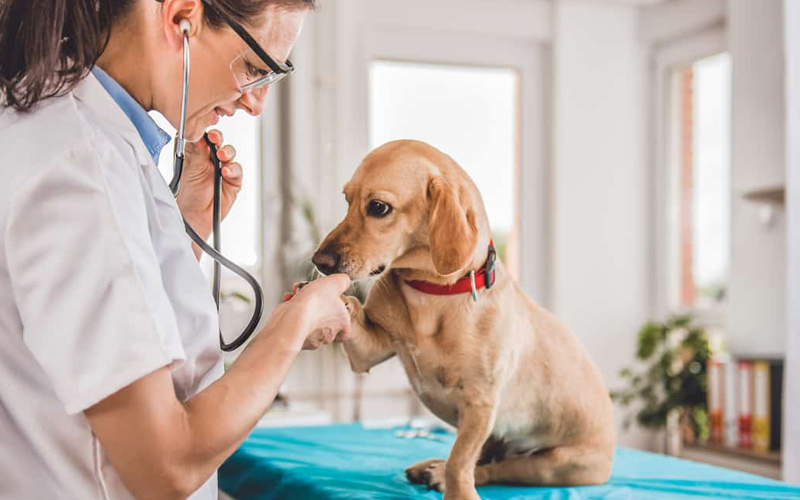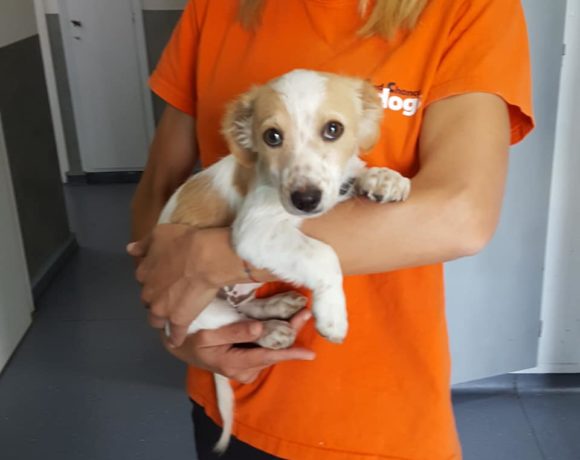Covid-19 & Dogs
VET Q&A
Can dogs catch Covid-19?
There is no evidence to show that dogs can transmit the Covid-19 virus to humans. The main source of infection for the Covid-19 virus is human-to-human transmission.
The spread of Coronavirus (COVID-19 virus) is now having a direct impact on everyone’s daily lives, following the most recent instructions from the Government. So it’s no surprise a lot of dog owners are worried for their four-legged friends. We’ve been answering some of your questions.
The good news is, current advice from the World Health Organisation is that there’s no evidence that pets can be a source of infection or that they can become sick from COVID-19.
We encourage all pet owners to take sensible precautions, and follow the latest guidelines. We’ll also be keeping this page updated as the situation evolves.
We would like to reassure you that there is still no evidence to show that dogs can transmit the Covid-19 virus humans.
New information on COVID-19 is rapidly evolving, and information will be updated as it becomes available.
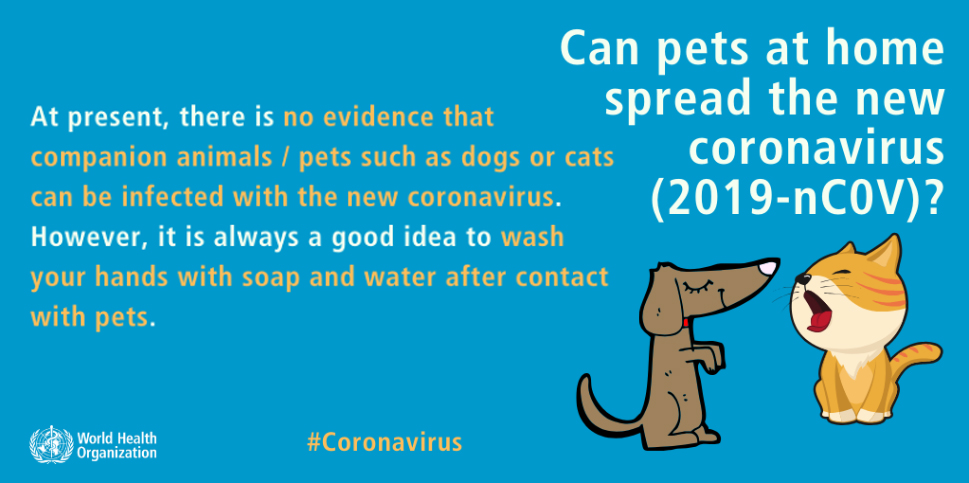
VET Q&A
All veterinary practices are now required to limit face-to-face contact with clients. This means running an emergency care and emergency prescription service only.
Recommendations for the operation of Veterinary Clinics
Starting from today 24/03/2020 at 18:00 until 30 April at 06:00, Veterinary Clinics will only work to deal with emergencies and specific veterinary acts, following prior telephone consultation with your veterinarian. Visits should be limited to what is strictly necessary in such a way to comply with the instructions of the Ministry of Health (restriction of movements, 1 customer per 8 square meters of useful area of the waiting area). Where possible, animals should not accompany their guardians and if that is necessary, the rule
of one guardian per pet, should be applied. Clinic staff, should be limited to the minimun possible (safety personnel only). Doors should be closed for public and all clinics should not operate for activities not listed below. Safety, antiseptic and disinfection measures of the premises, equipment and surfaces should always be adhered to.
Necessary veterinary acts to be carried out (always after consultation with your veterinarian):
• Vaccination of only vulnerable groups of animals, i.e. puppies or kittens (annual booster vaccinations in adult animals should be suspended until the measures imposed by the decree of the Minister of Health, are withdrawn);
• Examination of animals with symptoms of any condition, always after telephone assessment of the severity of the condition by your Veterinarian (e.g. chronic vomiting or diarrhea that is not addressed by dietary measures, etc.);
• Carrying out surgeries involving emergency situations or deemed necessary at the discretion of the
veterinarian;
• Other diagnostic tests required to be carried out as part of a treatment of a pathological condition (e.g.imaging tests, blood tests, ultrasound, endoscopy, etc.);
• Administration and sale of veterinary medicinal products where necessary (e.g. deworming and defleaing,etc);
• Animal feed and pharmaceutical clinical nutrition diets;
• In cases of house visits, we recommend that this movements should be restricted to those necessary and should comply with the above recommended directives for the veterinary clinics.
All activities that are not included or mentioned above, are suspended until the decree is withdrawn (e.g. grooming, nail cutting etc). In addition, we advise animal guardians to follow the directions announced by Cyprus government either by sending an SMS to the special number announced, or by filling out the required form, as directed.
Dogs can get sick from many things. There is no evidence at this time that your pet can get sick from COVID-19. However, if your dog develops an unexplained disease or comes into contact with someone infected with the coronavirus, talk to your veterinary and/or public health officials. This official may advise you to take your pet to a veterinarian. Inform your vet beforehand so that they can prepare. Do not take your pet to the vet unless you are instructed to do so.
If your pet needs emergency vet care during this period, call your vet in the first instance. Please don't go to the vet without calling first. Don’t leave the house to go to your vet if you are self-isolating, you'll need to arrange for someone else to bring your pet in to be seen if needed. in specific:
If you are not ill with COVID-19 or another communicable disease (e.g., cold, flu), call your veterinarian to make an appointment for your pet or service animal as you normally would.
If you are sick with COVID-19 or another communicable disease, you should stay at home, minimizing contact with other people, until you are well.
If you are sick with COVID-19, and you believe your pet or service animal is ill, please seek assistance from your veterinarian and public health officials to determine how to best ensure your pet or service animal can be appropriately cared for while minimizing risks of transmitting COVID-19 to other people.
It’s best to give your vet a call to discuss your situation and see how they may be able to help. Do be aware that many vet practices may have additional procedures in place, and may need to prioritise emergencies in the current situation. The veterinary profession is doing everything possible to ensure essential and emergency services can be maintained during this difficult time, within Government guidance.
If you are worried about a pet that needs repeat medication, call your vet for advice. For certain repeat prescriptions, it may be possible for them to post or deliver these to you. If not, then you could arrange for someone else to collect these and drop them off for you.
Although there have been no reports of pets or other animals becoming sick with COVID-19, it is still recommended that people sick with COVID-19 limit contact with animals until more information is known about the virus. This can help ensure both you and your animals stay healthy. There is still much to be learned about COVID-19 and more information will become available as the time passes. If you must care for your pet or be around animals while you are sick, wash your hands before and after you interact with pets and wear a facemask.
Follow the government advice, regardless of if you are showing symptoms, is to stay at home and avoid others unless absolutely necessary, so if your pet needs vet care during this period, call your vet in the first instance. Don’t leave the house to go to your vet if you are self-isolating. Get a friend or a relative to take your dog if it is an absolute emrgency.
There is currently no evidence to suggest that dogs can become ill from the COVID-19 virus.
If you notice any signs of illness in your pet we would advise calling your vet as usual in the first instance. They will advise you on the best course of action based on your circumstances, but please be aware that most vet practices will be operating very differently from usual. Please don't take your pet to a vet practice unannounced and bear with your local vet practice as they work to follow Government guidance in this unprecedented situation.
So far, only one dog has tested positive for coronavirus. The dog had swabs taken from its nose and mouth and these samples were found to be ‘weak positive’. The dog had no signs of disease and its blood samples were negative for antibodies. It’s believed that the positive results were due to the dog breathing in contaminated air from the infected owner. Later tests showed that the blood sample tested negative.
As with any surface, if someone with COVID-19 touches, sneezes or coughs on a dog, the virus could temporarily contaminate them. Although we don’t know how long COVID-19 can survive on surfaces, scientists think that it could range from a few hours to several days, depending on the type of surface, how warm it is and levels of humidity.
Let’s protect our pets
There is no evidence that pets can be a source of infection to other animals or humans. We highly recommend all pet owners take care of their animals and keep calm. Pets shouldn’t be abandoned under any circumstance and, as always, there’s absolutely no need for culling.
All around the world dogs improve and add value to our lives. They keep us company, protect homes and livestock, and can learn to do extraordinary tasks – so let’s make sure we keep them, and ourselves, protected.
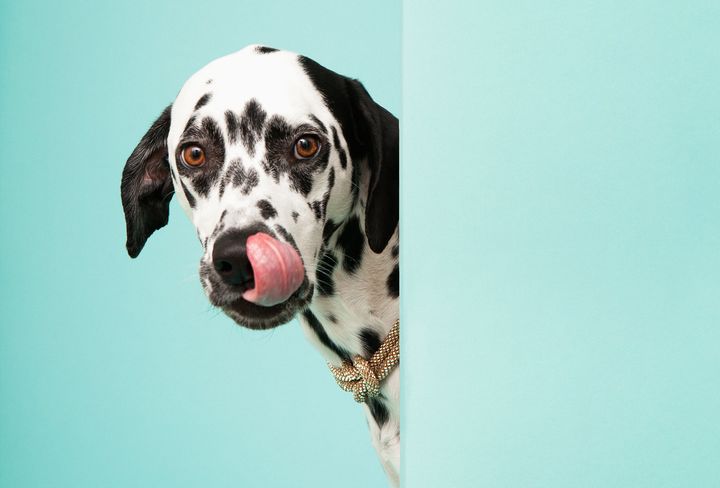
What precautions should I take with my own dogs?
If possible, bath your dog often and regularly wash your hands with soap and water after touching them.
Never put alcohol-based hand wash or disinfectants on your dog, as this could irritate their skin or may be poisonous if it’s licked.
WASH YOUR HANDS
Although there is no current evidence that suggests the coronavirus can be transmitted to or from companion animals, it’s always a good idea to follow basic hygiene practices around animals. This includes washing your hands thoroughly throughout the day and before and after direct contact with your pets, their food or their supplies.
DESIGNATE AN EMERGENCY CAREGIVER
Proactively identify someone who could help with their short- or long-term care in the event you are unable to care for your pet. Consider a family member, friend, neighbor or your favorite boarding facility.
STOCK UP ON PET SUPPLIES
Prepare a kit with essential supplies to have on hand in the event of an emergency. Your emergency kit should include a 30-day supply of your pets’ medications, as well as at least two weeks’ worth of food.
CREATE A PET DOSSIER
If your emergency caregiver’s assistance is needed, make it easier for them by having all of your pets’ information in one place. Consider including things like habits, food preferences, medical conditions and medications taken, veterinarian contact information, and any behavioral tendencies.
Dogs at rescue centres, dog shelters and community pounds are in need of assistance!
Dogs should not become the victims in this pandemic. They are vulnerable, and they need our help and protection. As there is no evidence that stray dogs or cats can transmit COVID-19 to people or get sick from it, we don’t need to be scared or concerned about these animals passing on the infection.
As always, we should follow all sanitary recommendations as indicated by health authorities, such as hand washing.
What can I do to help animals living in the street during this crisis?
Since the primary way to stop the outbreak is to stay at home, leaving your home to provide food or water to a dog or cat should involve eliminating all non-essential interactions outside the house.
If there are animals who depend on you for food or water, place these without interacting with the animal, as the same animal might be fed by multiple people in the community whose medical and travel histories are unknown. The governments is issuing specific permits for organizations and individuals who feed street dogs/cats.
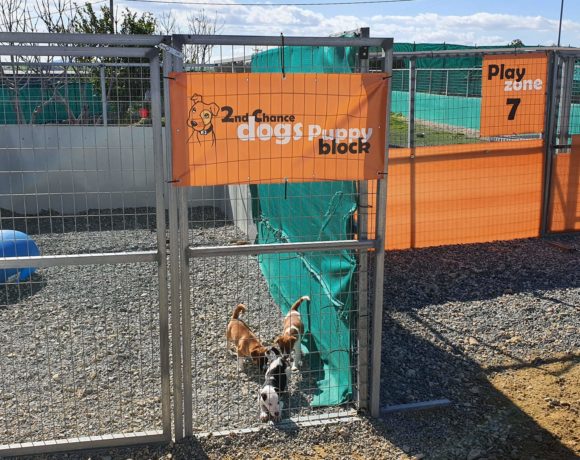
.
Donate
A lot of animal shelters seem to be suffering because people are no longer donating, and volunteers can no longer go to the facilities. We are no exception.
One unfortunate side effect of the pandemic has been that shelters and rescue centers are no longer able to take volunteers, funding has dropped, and people that could otherwise adopt, are not doing so. New intakes have halted as dogs cannot be rehomed becuse of social distancing, this is dangerous to animals that depend on this care for their survival and welfare. Donating food or money could be an easy and helpful thing to do.
Dogs are still in need and the work of 2nd Chance Dogs goes on 365 days a year with no exception even in a pandemic. We’d be grateful for any donation amount you can spare to support our ongoing efforts to help animals at this difficult time and into the future.
2nd Chance Dogs still has to pay for food, k9 carers salaries, utilitiy bills medications and vet bills. and your generous monetary donation will be gratefully accepted, particularly during this stressful time.
Again, thank you for standing with us and our dogs, especially now. Please check back for any future updates, and stay safe!
This uncertain and stressful time is also a wonderful opportunity to unify behind a common love of animals.
COVID-19 does not discriminate; people from all backgrounds and communities will be impacted.
A deep connection to animals transcends socio-economic, racial, ethnic and geographic boundaries and honoring that bond with compassion, not judgment, is a very simple yet impactful way to contribute positively in your community during this crisis.
Pet Health
OIE - Advises that people who are ill with COVID-19 should limit close contact with their pet until more is known about the virus. When handling pets, adhere to basic hygiene measures. This includes hand washing before and after being around or handling animals, their food, as well as avoiding kissing, licking or sharing food. Further information is here.
WSAVA - World Small Animal Veterinary Association’s guidelines are here
FVE – Federation of Veterinarians of Europe find updates and resources from FVE here
FECAVA - BSAVA's European Association’s guidelines for practices are here and for clients here
The American Veterinary Medical Association (AVMA) - AVMA have general resources alongside those specific to their region available here.
CFSG - information can be found here.
PVA - Pancyprian Veterinary Association here.
Human Health
WHO - Practices can share their infographic on their websites or on social media to allay any fears clients might have about the virus and their pets. It can be accessed here.
CDC – Centers for Disease Control and Prevention info found here:
PIO – Cyprus press information office here.

